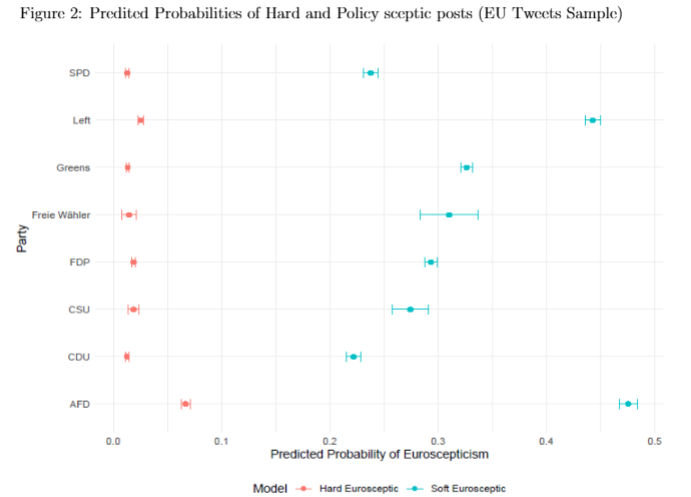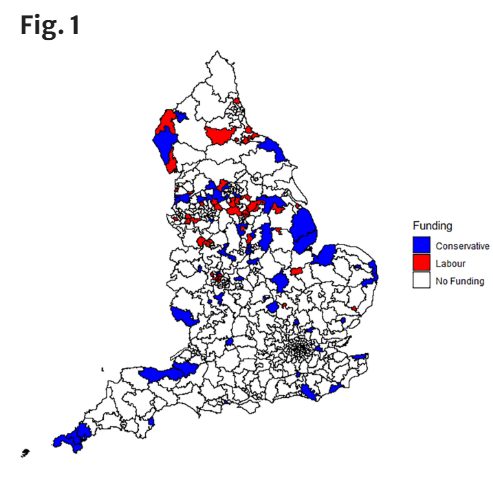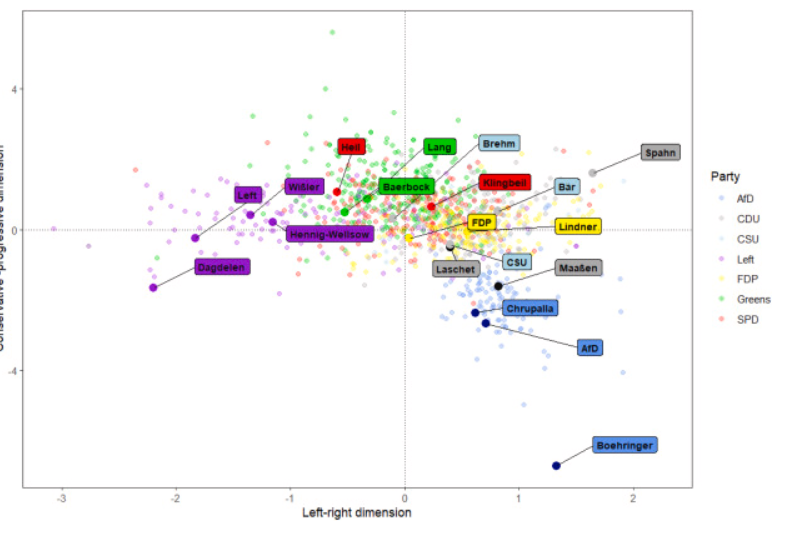Publications
2025
-
 Detecting EU sentiment in texts: A LLM Machine Learning application for Euroscepticism research.Johannes Lattmannpreprint, 2025
Detecting EU sentiment in texts: A LLM Machine Learning application for Euroscepticism research.Johannes Lattmannpreprint, 2025This article presents a supervised classification model for measuring mentions and sentiments about the European Union. This research provides new ways to study and explain variation in Euroscepticism. Specifically, this research presents a binary classification algorithm for detecting speech about the European Union. In addition, it introduces a second classifier consisting of a multi-class classification model for EU praise, hard eurosceptic sentiment, policy scepticism and demand for further EU integration. These are widely used concepts in Euroscepticism research. Based on a pre-trained BERT-based model, I fine tune my classification models on 2000 human annotated tweets of German election candidates between 2007-2021. I am further refining this by training additional models on parliamentary speeches, in order to expand the potential texts to be analysed with these models. All models are available in German and English. This new classification application can expand the possibilities for researchers to study how politicians write and speak about the EU.
2024
-
 The electoral effect of pork barrel politics: evidence from EnglandJohannes LattmannPublic Choice, 2024
The electoral effect of pork barrel politics: evidence from EnglandJohannes LattmannPublic Choice, 2024This study examines the effect of the allocation of centralised funding on electoral support for the incumbent by utilising the introduction of the “Towns Fund” in England in 2019 as a natural experiment. For causal identification, I leverage a difference-in-difference design to examine the electoral effect of this fund. My findings suggest that providing funding to constituencies significantly increased the vote share of the Conservative Party in the General Election in 2019. However, in a subset of constituencies in which the Labour Party constitutes the incumbent, the findings can not be replicated for all specifications and robustness checks. Furthermore, I do not find consistent support that the effect is stronger in economically deprived constituencies. Similarly, the results suggest that the voting outcome depends on the total amount of funding being received, however, this finding does not reach statistical significance. These results complement the literature by providing empirical evidence for pork barrel as a functioning means for vote buying for the Conservative government in 2019 in England. Furthermore, this paper emphasises that partisanship should be considered as a mediating variable when analysing the political effect of providing place-based funding.
-
 Mode of candidacy, electoral prospects, and the ideological deviation of candidacy-seeking politicians from their party leadershipMarc Debus, Johannes Lattmann, and Sarah WagnerElectoral Studies, 2024
Mode of candidacy, electoral prospects, and the ideological deviation of candidacy-seeking politicians from their party leadershipMarc Debus, Johannes Lattmann, and Sarah WagnerElectoral Studies, 2024Politicians who seek their parties’ nomination as candidates for public office start communicating their ideological profile to the selectorate months before the party decides on who will run as candidates. However, some politicians tend to steer away from their party leadership, while others stick closer to the party line. We argue that not only the mode of candidacy but one’s expected chances of winning the election during the candidate selection period are defining factors in understanding why some candidates deviate further from their party leadership position than others. We use novel data on the degree of intra-party competition among the main German parties in all 299 electoral districts and on the ideological positions of candidates, measured using their Twitter statements in the run-up to the 2021 Bundestag election, to evaluate our expectations. In line with existing studies, we find that candidates who seek only their party’s nomination via lists deviate less from party leadership than candidates who seek nomination as a district candidate. In contrast to our expectations, candidates who seek their nomination in an electoral district do not deviate more ideologically from their party when they can expect to win the district seat on election day based on published polls during the candidate selection period.